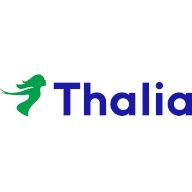Headless CMS on Azure: What You Need to Know

Sara Williams

Millions of enterprises have chosen to host their enterprise software in the cloud to take advantage of reduced costs, better flexibility, and automatic updates that take some of the burden away from their developers.
When it comes to CMS solutions, hosting in the cloud can aid in easier maintenance and global content delivery, allowing businesses to deliver engaging digital experiences and reach their customers across the globe much faster. Among the cloud hosting providers, Microsoft Azure remains one of the most popular with 25 percent of overall market share as of Q1 2024.
So what are the benefits of hosting and running a modern headless CMS on Azure? In this blog, we’ll explain everything you need to know about an Azure CMS.
What is Azure?
Microsoft Azure (or simply Azure) is a cloud computing platform built by Microsoft. Azure enables individuals, companies, and governments to manage, access, and develop applications and services through its global infrastructure.
Azure offers a wide range of services including computing, storage, networking, databases, analytics, artificial intelligence, and IoT. It also allows organizations to leverage software as a service (SaaS), platform as a service (PaaS), or infrastructure as a service (IaaS) capabilities for their applications as they see fit.
What Is an Azure CMS?
An Azure CMS is a content management system hosted on Azure. As a cloud-based or cloud-native CMS, an Azure CMS enables organizations to manage their content experiences in the cloud, providing access from any location and removing the need to manage servers on-premises.
Using Azure's scalable and secure services, an Azure CMS can provide robust content creation, management, and delivery capabilities. This also means it can offer high performance and global accessibility.
What is an Azure Headless CMS?
An Azure headless CMS is simply a headless content management system hosted on Azure, and one that can easily take advantage of all the services that Azure has to offer. It separates the content repository backend from the frontend presentation layer, enabling businesses to deliver content to any device via APIs. This provides added flexibility and greater control over how content is rendered and delivered.
Azure Services For Content Management
Azure offers a number of services that are ideal for deploying and running a headless CMS and content management applications such as enterprise websites, e-commerce apps, intranets, portals, OTT video experiences, AR/VR apps, digital signage, and more.
- Azure App Service: A fully managed platform to build, deploy, and scale web apps, mobile backends, and APIs, supporting multiple programming languages.
- Azure Blob Storage: A scalable object storage service for unstructured data such as images, videos, and documents, with tiered storage options.
- Azure SQL Database: A fully managed relational database service providing high availability, scalability, and security for storing and managing data.
- Azure Cosmos DB: A globally distributed, multi-model database service offering low latency and high availability for scalable content storage.
- Azure Cognitive Search: A search-as-a-service solution that provides powerful search capabilities with AI-driven features like natural language processing.
- Azure Media Services: A platform for media encoding, live streaming, and on-demand video delivery, offering high-quality media experiences.
- Azure Content Delivery Network (CDN): A global network for delivering content quickly to users worldwide, reducing latency and improving user experience.
- Azure Functions: A serverless computing service for running event-driven code without managing servers, ideal for automating workflows and processes.
- Azure Active Directory (Azure AD): A comprehensive identity and access management service providing secure authentication and single sign-on for users and applications.
Benefits of Azure for CMS Hosting
For organizations currently using Azure for their cloud hosting requirements, hosting their CMS on Azure offers several benefits.
Integration with the Microsoft Ecosystem
Azure offers tight integration with other Microsoft products such as Office 365, Dynamics 365, and Power BI, which can enhance productivity and streamline workflows for businesses already using Microsoft solutions.
Security and Compliance
Azure provides advanced security features and a wide range of compliance certifications. This makes it a suitable choice for industries with strict regulatory requirements, including healthcare, finance, and government.
Familiar Development Tools
Azure offers a suite of development tools, including Visual Studio and Azure DevOps which many developers will already be familiar with. This reduces the learning curve of getting started as well as the development, testing, and deployment of CMS applications.
Cost-Effective Solutions
Azure offers competitive pricing models and cost management tools that help businesses optimize their spending, making it an attractive option for cost-conscious organizations.
Global Reach and Performance
Azure has a vast global network of data centers, providing low-latency access and high performance for users around the world.
Characteristics of an Azure CMS
Once businesses decide that Azure offers the best option for their hosting requirements then there are certain characteristics to consider in an Azure CMS.
Cloud-Native
An Azure CMS must be cloud-native, meaning it must be designed specifically for cloud deployments from the start. Such software uses a microservices architecture and supports containerization, enabling the CMS to handle the demands of today's digital landscape.
Stateless & Serverless
A stateless architecture allows the independent operation of separate application instances, making it possible to deploy content services without complex synchronization or shared resources. Stateless and serverless designs can be managed with minimal IT involvement, with most operations being automated.
Elastic Scalability
To maintain high performance globally, an Azure CMS needs an elastic architecture. This allows the CMS to dynamically allocate resources based on traffic and performance needs, ensuring optimal efficiency and responsiveness.
Why Opt For CrafterCMS on Azure
CrafterCMS is an enterprise-grade headless CMS and the ideal CMS for deployment on Azure. Unlike SaaS-only headless CMS’s, CrafterCMS Enterprise is a self-managed solution that can be deployed on any public or private cloud. This flexibility allows enterprises to choose the right underlying infrastructure for their headless content management needs.
Side Note: Crafter Cloud is a fully-managed, private Saas offering from CrafterCMS that runs on AWS.
Best-in-Class Content Authoring
With CrafterCMS, enterprise content teams can eliminate 95% of the usual authoring, editing and publishing issues that are typically seen with other content management systems. Crafter Studio, the CMS authoring application, allows content authors to also enjoy user-friendly tools that let you create, update, and publish to any digital channel with ease. They also benefit from drag-and-drop experience building, WYSIWYG content editing, multi-channel previews, and more for seamless digital experience content creation.
Developer Freedom and Flexibility
CrafterCMS is an open-source, Git-based headless CMS that is proven to boost software development and QA productivity by over 40%. Software developers can build websites and apps using REST or GraphQL APIs, any JavaScript framework on the frontend or extend the backend with Groovy and/or Javascript (Nodejs, Nextjs, etc.).
Elastic Scalability
CrafterCMS offers elastic scalability, allowing enterprises to handle increasing traffic demands without compromising performance. This ensures smooth user experiences even during peak periods.
Composability
CrafterCMS is a composable CMS that integrates with other top-tier tools, enabling businesses to build and maintain a dynamic digital experience platform (DXP) that evolves to meet current and future needs.
Plugin Marketplace
The CrafterCMS Marketplace offers several pre-built plugins, allowing businesses to quickly develop new features and create custom plugins that can be reused across websites and apps.
Enterprise Security
CrafterCMS provides robust enterprise security features, including granular roles and permissions, multi-tenancy, single sign-on (SSO) integration, decoupled architecture, and other capabilities to protect customer data and ensure access only for authorized users and to protect public-facing sites and apps from hackers.
Deploying CrafterCMS on Azure
As a self-hosted/self-managed solution, CrafterCMS Enterprise offers a flexible deployment model to suit each organization’s unique needs. The only constraint is for large file storage, where CrafterCMS uses Amazon S3 for bucket storage. However, this has basically become the standard and Azure offers an S3-compatible storage interface which allows organizations to realize the same benefits of CrafterCMS.
Try Now
Ready to try CrafterCMS on Azure? You can download the open source, community edition of CrafterCMS now, or contact us for a free trial version of the fully-supported edition of CrafterCMS Enterprise.
Related Posts

Headless CMS for QSR: Powering Digital-First Quick Service Restaurants

Amanda Jones

AI Skills for CMS-Based Web Development

Sara Williams

From HTML Template to Fully Managed Experience in Minutes: CrafterCMS + AI-Powered Workflows

Sara Williams

How Should You Structure a Blog Post So AI Models Actually Cite It?

Amanda Jones
Related Resources
-
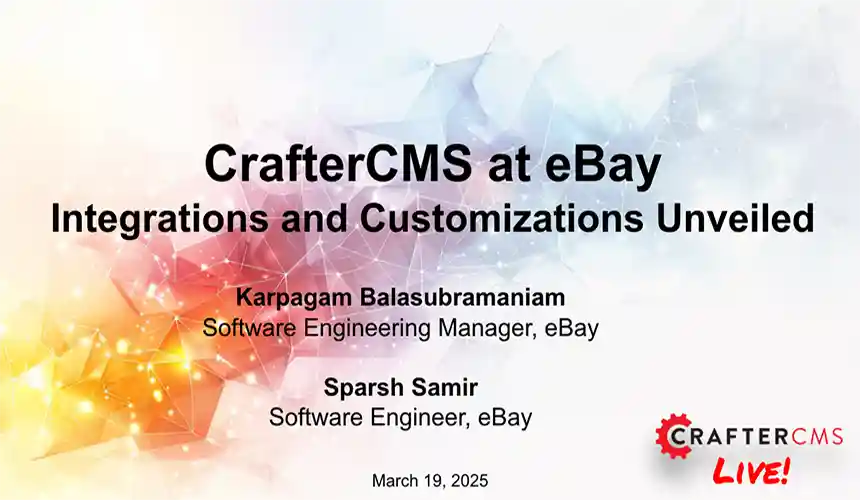
CrafterCMS at eBay: The Universal Content Platform for eBay.com
Webcast
-

Personalized Digital Experiences for a Cruise Liner
Webcast
-
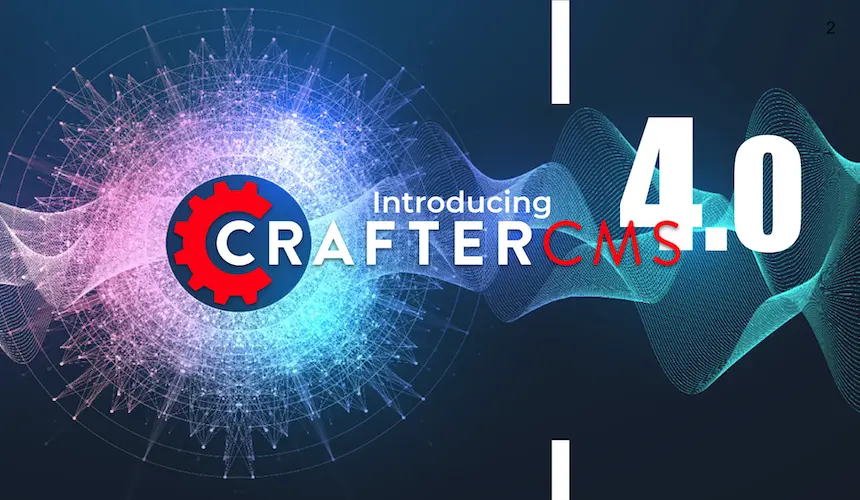
Introducing CrafterCMS v4.0
Webcast
-
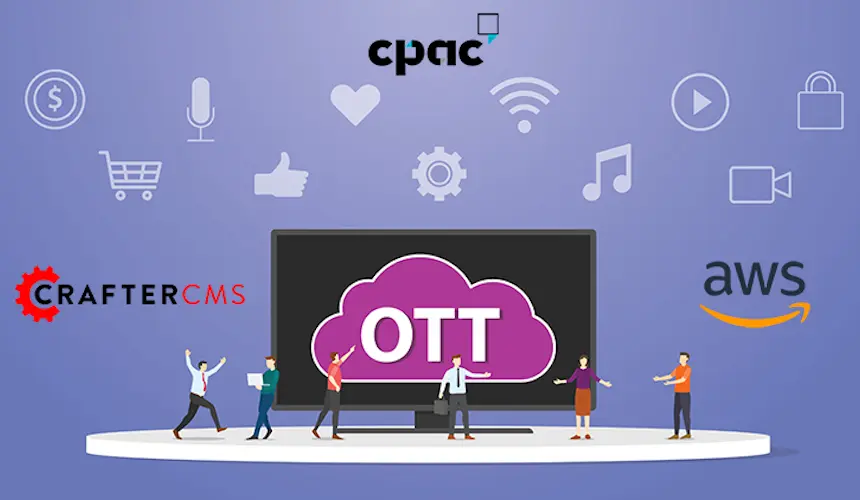
Modernizing Video Delivery and Content Management at CPAC, A Canadian Nationwide Broadcaster
Webcast
-
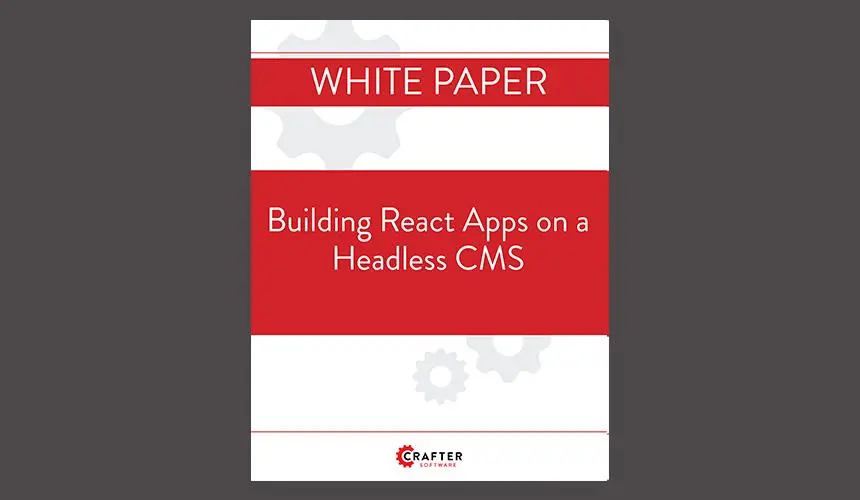
Building React Apps on a Headless CMS
White Paper



